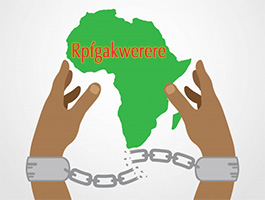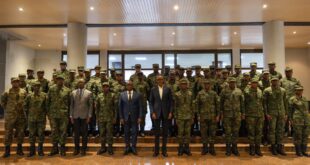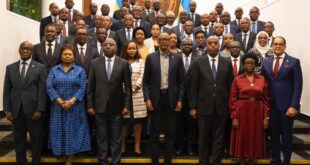By: Prof. Charles Kambanda
1. Police brutality discourse hinges on one issue:
How much force is a police officer /law enforcement allowed (legally) to apply whilst (i) enforcing the law, and (ii) acting in self-defense (to defend him/herself, fellow officers and/or the general public).
2. The standard to determine whether or not law enforcement used “appropriate” force is plain: What would a reasonable police officer have done, in a similar situation.
The legal standard in police brutality cases is very low, in favor of police officers.
3. Once attacked or threatened with an attack, a police officer’s right to self-defense is broader than a “civilian’s” right to self-defense. For example:
(i) A “civilian” can’t claim self-defense against law enforcement/police officer, acting in his/her official capacity.
(ii) A police officer is not required to retreat before he/she can exercise his/her right to self-defense (he/she takes on the attacker or potential attacker immediately).
(iii) When a “civilian” attacks a police officer and the officer exercises his right to self-defense, the attacker can never become an innocent party; a police officer can never become the aggressor once attacked or threatened with an attack.
4. It’s important to note that police is allowed to defend property, against attackers, using a gun or any and all means at his/her disposal.
5. Our engagement with police officers on duty must never ignore the fact that the law gives police officers broad power to use force (they are not bound by proportionality rule). Therefore, the general public MUST:
(i) Abide by all lawful orders by police officer on duty
(ii) Avoid threats of violence to police officer(s) on duty
(iii) NEVER attack or threaten to attack a police officer acting in their official capacity.
6. We MUST distinguish between Constitutional and unconstitutional change of government.
(i) Constitutional change of government means changing government through the ballot.
(ii) Unconstitutional change of government means using otherwise illegal means to chance government.
Either option has consequences for proponents of change.
7. Law enforcement in Uganda ought to review their response to unrest. However,
(a) provoking law enforcement into violence or attacking law enforcement, the way it’s done is Uganda, is dangerous.
(b) Demonstrations (a Constitutional right) should not be confused with riots. There is no constitutional right to riot. No government treats riots lightly.
Question:
Is the obvious culture of insane violence by the general public and law enforcement sustainable? No.
How do we change the horrific culture of violence in Uganda?
1. My submission was meant to remind people that the legal standard for use of deadly force by Police/law enforcement on duty is low, in favor of police officers/law enforcement.
2. Communities MUST know that whilst riots may bring about political/social change, governments allover the global treat riot, uprising or rebellion for what it is; a move to overthrow the government.
3. Government is legitimate until it’s overthrown. Whoever undertakes to overthrow government through riot, uprising or rebellion must be prepared for government’s fire and fury.
4. There is no Constitutional right to riot; rioting is a set of crimes, which become patriotic acts after overthrow of the existing government (refer to John Austin’s Philosophy; New Legal Order).
5. Rioters are considered criminals/ armed fighters by the government they seek to overthrow/change. Unfortunately, the Geneva Conventions (International Humanitarian Law) does not cover riots. Therefore, there is no equivalent of the Common Article 3 of the Geneva Conventions for rioters. It means that people who are not actively involves in the riots (bystanders), rioters who have laid down their “arms” and the injured rioters are by themselves, at the “mercy” of the merciless law enforcement.
6. We should never sugarcoat riots for demonstrations. Rioting is a set of crimes, which become heroic acts after overthrow of the existing government. Demonstration is a Constitutional right; protected speech. Demonstrations are impossible without close cooperation between police (law enforcement) and the local communities.
7. In my considered view, communities must stick to demonstrations; follow the law and work with police, if we do not want to expose innocent people to law enforcement’s “fire and fury” OR engage the government militarily (war). Sacrificing “civilians” in riots/uprising/rebellion, under color of demonstrations, is being reckless.
 Africa Just another WordPress site
Africa Just another WordPress site


